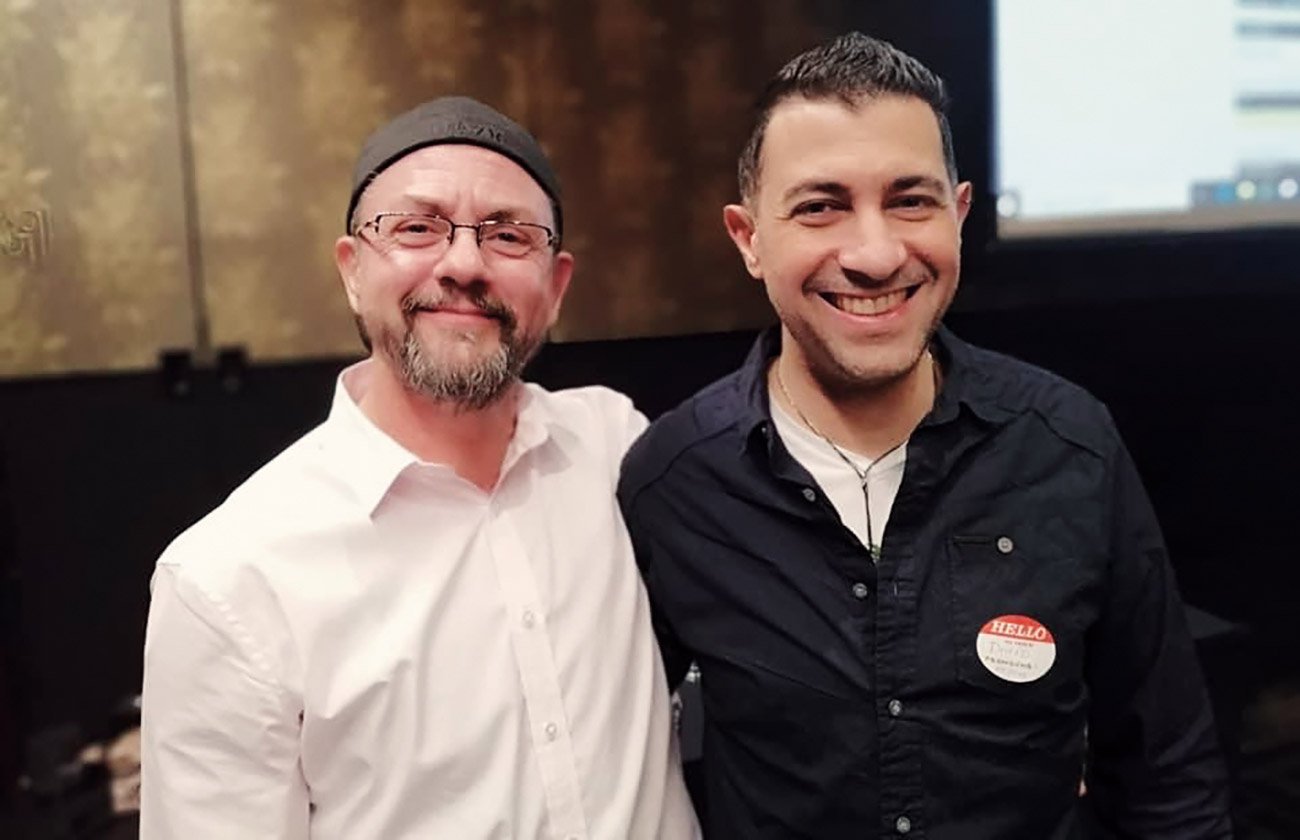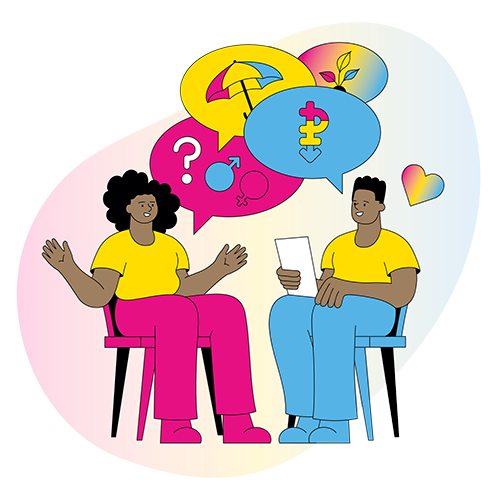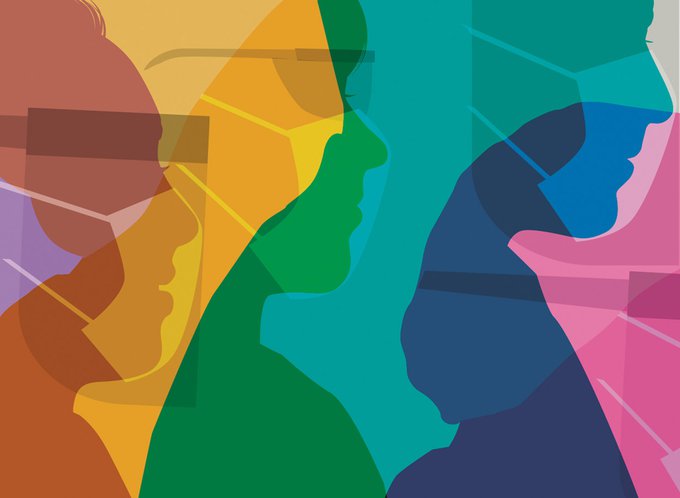Invercargill GP Dr David Sar Shalom says taking simple steps can help LGBTQI+ patients access better healthcare. He is helping South Island medical professionals better cater to their LGBTQI+ patients by running workshops in partnership with transgender artist Ari Edgecombe.
The course of Invercargill GP Dr David Sar Shalom's life was changed by a LinkedIn message from a stranger.
David, who is originally from Venezuela, was considering moving to Norway for work until he received an out-of-the-blue message on LinkedIn from a recruiter inviting him to interview for a role in Aotearoa.
"It was one of those outageous things – I thought who would ever go to New Zealand? My partner and I decided to try it for a year, and that was six years ago."
David now runs health workshops on top of his general practice work, helping South Island medical professionals better understand the health needs and experiences of their lesbian, gay, bisexual, trans, queer, questioning and intersex patients.
His 'Let's make it Perfectly Queer: An Introduction to LGBTQI+ Health' workshops kicked off in 2020, and have now been delivered around the South Island.
David is also chair of CHROMA, a volunteer-led initiative that supports LGBTQI+ youth in Southland.

Ari Edgecombe and Dr David Sar Shalom
Broad appeal
It was his own desire to learn more that led David to establish the workshops.
"I'd done an online course about LGBTQI+ health through Harvard Medical School, which was brief but introduced some really interesting concepts.
"Then I was on a GP weekend on Stewart Island, which was organised by WellSouth and the Royal New Zealand College of GPs, and at the end of the weekend, the feedback forms asked what kind of topics we'd like more training on. I thought it would be great to get more training on LGBTQI+ health, and then one of the organisers called me and asked if I would consider putting this together with their support."
David tested the workshop in 2020 with 45 medical professionals in Invercargill and received overwhelmingly positive feedback.
The success of the first workshop led to WellSouth taking it further afield, and the training has now been delivered around the South Island to a range of medical professionals including social workers, mental health workers, GPs and speech therapists.
"We've even delivered them in Cromwell and Balclutha, which are very rural areas that you don't expect to be as engaged in this issue.
"Regardless of whether people acknowledge it or not, LGBT people are out there."
“People often linger afterwards and say I have a cousin or a nephew that’s been experiencing this and I just didn’t know what they were talking about, but now I feel more comfortable to bring it up and support them.”
Advocating for patients
 The workshops cover scientific and medical concepts, the history of rainbow health and patient experience. This includes topics like what the letters in LGBTQI+ each mean, what a pronoun is and the difference between gender identity and gender expression and how this differs to sexual orientation.
The workshops cover scientific and medical concepts, the history of rainbow health and patient experience. This includes topics like what the letters in LGBTQI+ each mean, what a pronoun is and the difference between gender identity and gender expression and how this differs to sexual orientation.
“We also encourage them to look at the whole person, not assume anything, and have open conversations,” David says.
“I also got one of my good friends Ari Edgecombe involved to give some patient perspective. He is very open about being trans himself. I think people connect to his part of the talk even more than mine, which is pretty neat.
“It’s really important to include the perspective of someone who’s going into the healthcare system who has dealt with things like enrolling in a practice, navigating the system and going from public to private,” David says.
LGBTQI+ health isn’t normally taught in medical schools and isn’t included in most professional development, says David, and when it is, it’s often passing mentions relating to sexual health.
He wants to reassure other medical professionals that they don’t need to know everything, but hopefully afterwards they feel comfortable to say that they’re interested in knowing more and asking patients about themselves.
Dr David Sar Shalom’s three tips for health professionals to be more LGBTQI+ inclusive
1. Use visual cues to show your practice is a rainbow-friendly environment. This is as simple as putting up some posters for a local support group or a rainbow sticker
on the door.
2. Enrolment forms are often not very friendly for LGBTQI+ patients. If you can, add options for gender as well as sex assigned at birth, and leave a spot for people to write ‘other’ and give some more information.
3. In face-to-face contacts, get into the habit of introducing yourself by including your name and your pronouns. You can then ask patients what their pronouns are and how they’d like to be referred to.
Welcoming and accepting
David hopes this work will influence the overall experience that patients have from the moment they contact a medical practice.
“We have some tips to help your practice be more welcome and accepting, which then encourages patients to open up.”
“Just asking about a patient’s pronouns and getting them right makes patients more comfortable.”
The language that is used on notes and referrals goes a long way, he says. The binary approach used in medical software is often unhelpful.
“One example is where there’s only a male and a female tickbox, which can cause issues, for example, if someone is trans. We might want to order a prostate screening test for someone who has ticked the female box, but the system doesn’t give us this option.
“The systems can be very black and white, but there are more people who are in the grey, and I’d like to see it be more friendly around this.”
Know someone who might enjoy this?
Professional life
See all-
March 2021
Made for today a century ago
-
March 2021
The great brain gain
-
March 2021
A hectic, horrific working holiday
-
March 2021
Smooth sailing for Southern Spars



